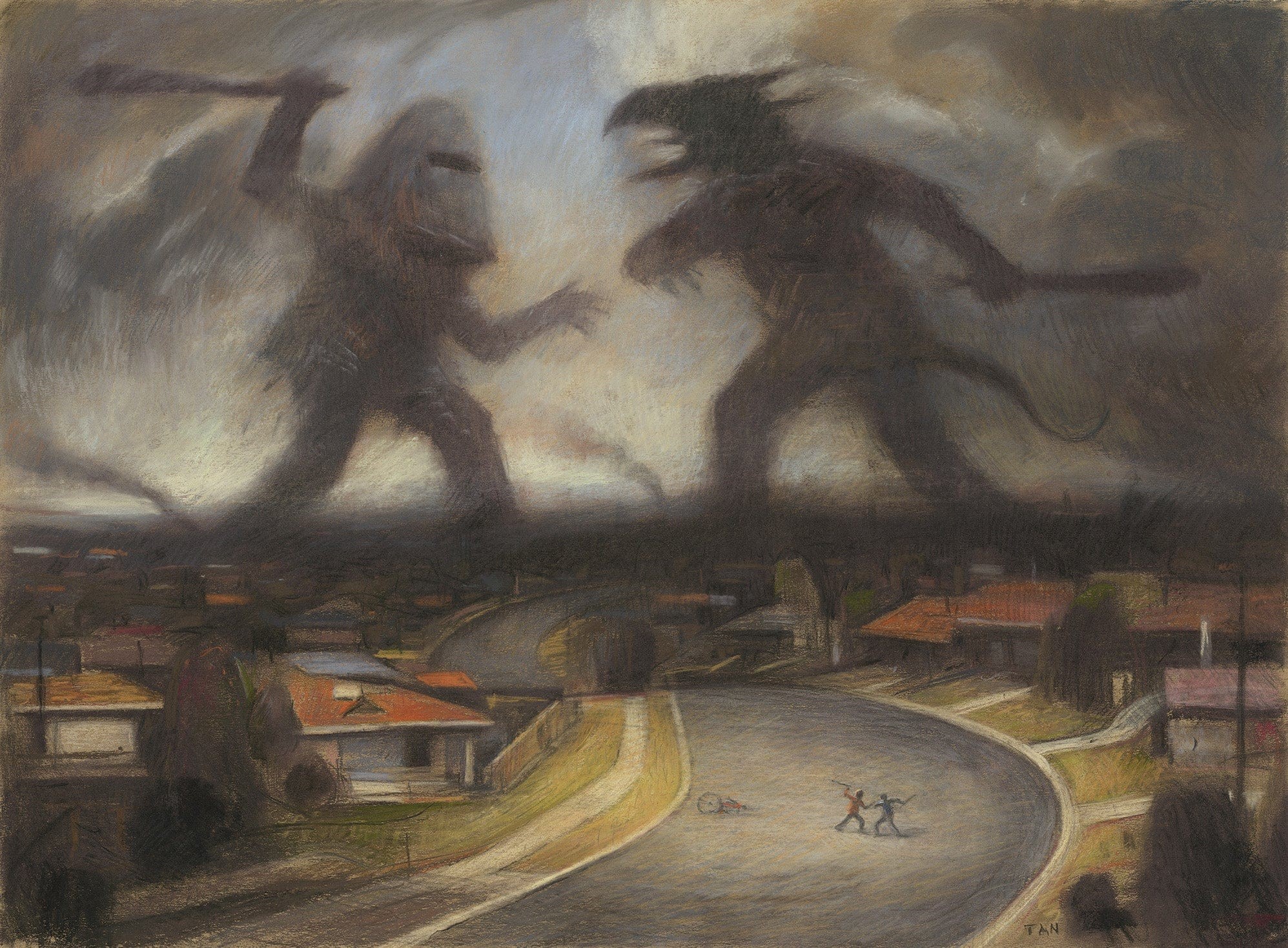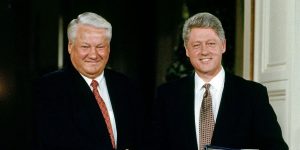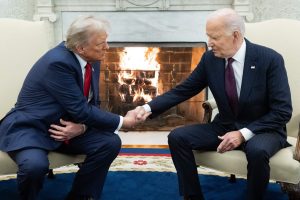Erich Maria Remarque’s novel ‘All Quiet on the Western Front’ is about 19 year old Paul Bäumer who fights in the German army on the French front in World War I. In a training camp near a group of Russian prisoners-of-war, Paul discovers that the Russians are people just like him and wonders how war can make enemies of people who have no grudge against one another.
In a battle, Paul is forced to hide in a shell hole. A French soldier jumps into the shell hole with him, and Paul instinctively stabs him. As the man dies a slow, painful death, Paul is overcome with remorse for having hurt him. He feels again that this enemy soldier is no enemy at all but rather a victim of war just like himself: “I see you are a man like me.” But his friends tell him that war is about killing enemies: “After all, war is war.”
By the fall of 1918, Paul is the only one of his circle of friends who is still alive. Soldiers everywhere whisper that the Germans will soon surrender and that peace will come. Paul is poisoned in a gas attack and given a short leave. He reflects that, when the war ends, he will be ruined for peacetime; all he knows is the war. In October 1918, on a day with very little fighting, Paul is killed. The army report for that day reads simply: “All quiet on the Western Front.” Paul’s corpse wears a calm expression, as though relieved that the end has come at last.
Forgiveness and recognising each other’s humanity is only possible after we have killed and destroyed each other, Wilfred Owen says in his poem ‘Strange Meeting’ written in 1918, before being killed while fighting in World War I, also on the Western Front.
Two soldiers meet up in a dark tunnel which they come to realise is Hell, the first having killed the second in battle. Most of the poem is a dialogue between the two soldiers. Enemies in war, the two become friends only after death: “I am the enemy you killed, my friend.”
Wilfred Owen took the title of his poem ‘Strange Meeting’ from Shelley’s poem ‘Revolt of Islam’ written a century earlier. Shelley writes against religious wars where two sides clash with each other in a war between good and evil with each side believing that God is on its side and that the other side is evil. Shelley makes the point that good and evil reside within each and every side and within each and every one of us. He also makes it clear that even ‘freedom wars’ are not wars between tyranny and liberty and that even liberators are potential tyrants.
“Since wars begin in the minds of men, it is in the minds of men that the defences of peace must be constructed.” American author and poet Archibald Mc Leish wrote this 80 years ago in the Constitution of the United Nations Educational, Scientific and Cultural Organization (UNESCO).
Two world wars had killed around 100 million people in less than a generation. UNESCO was set up in the firm belief that political and economic relationships are not enough to build a lasting peace. Peace must be established on the basis of humanity’s moral and intellectual solidarity.
UNESCO’s main mission was to establish the conditions of peaceful coexistence between nations with the knowledge: “That ignorance of each other’s ways and lives has been a common cause, throughout the history of mankind, of that suspicion and mistrust between the peoples of the world through which their differences have all too often broken into war”
We seem to be better at constructing enemies than constructing peace. Is the enemy really an enemy or a distraction to divert attention from domestic problems?
We divide the world into “us” (the in-group) and “them” (the out-group or enemy). Their beliefs, values and behaviours are not only different, they are inferior, hostile, uncivilized and evil. The enemy is a threat to our interests, values and way of life. We spread suspicion, distrust, hate and fear against the enemy to mobilize for war against him. The enemy is not a human being we can empathize with. The enemy must be destroyed.
Trying to build bridges and cross cultures to understand the enemy through dialogue and negotiations is denigrated as naïve, even treacherous. We are sometimes asked to propose innovative diplomacy for the 21st century, as long as we do not propose to sit and talk with our enemies. Basil Liddell Hart’s old-fashioned ‘Advice to Statesmen’ today is dismissed as old-fashioned and irrelevant:
“Keep strong, if possible. In any case, keep cool. Have unlimited patience. Never corner an opponent, and always assist him to save his face. Put yourself in his shoes – so as to see things through his eyes. Avoid self-righteousness like the devil – nothing is so self-blinding.”
Equally old-fashioned and irrelevant is Nelson Mandela’s belief that: ‘If you want to make peace with your enemy, you have to work with your enemy. Then he becomes your partner’.
Jesus’ exhortation is even more outrageous: “Love your enemies; do good to those who hate you; bless those who curse you; pray for those who mistreat you”.
So, following Mandela and Christ is out of the question. But we still have to deal sensibly with our enemies. Like the sculptures of Thomas Schutte’s ‘United enemies’ we hate each other and want to get rid of each other but cannot as we are bound to one another with one rope. Schutte’s point is that, whether we like it or not, all people and states on this tiny dot in the universe, are bound together with one rope. However much we want to kill each other as enemies (imagined, created or real), we have to find ways of living together, within countries and between countries, if we are to survive on our planet.
As the world order changes, such historical moments regularly lead to terrible wars as declining powers fight rising powers. Will they have the wisdom to find ways of somehow co-existing? This is the first time in human history where the contenders have the armaments not only to destroy each other but also the rest of humanity.
Times of Malta 20 June 2025




